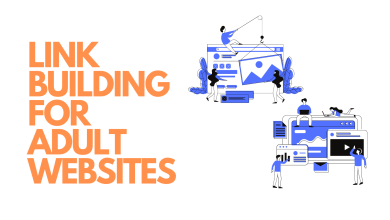High-Impact Mentoring: A Framework For Effective Skill Development

As the world becomes increasingly complex, it is more important than ever for individuals to have the skills they need to succeed. Unfortunately, many people do not have the opportunity to learn new skills through traditional educational programs. High-impact mentoring can provide opportunities for people who may not have had the chance to learn new skills. It is based on the idea that mentoring should be high-impact, which means that it should positively impact the mentee’s development.
Do we have your attention now? We hope so! This article by Anthony Todd Johnson will cover everything you need to know about this approach. He will also go into detail about how to build a framework to use it in your company.
1. What Is High-impact Mentoring?
High-impact mentoring programs are designed to help young people reach their full potential. They typically involve a mentor and a mentee, intending to strengthen their relationship. The mentor assists the mentee in gaining knowledge and abilities that will enable them to succeed. The mentor can provide advice and direction and offer the mentee support and encouragement.
This approach can have a significant impact on the lives of its participants. They can help young people develop the skills and knowledge they need to achieve their goals and succeed. They can also help young people develop a positive relationship with a mentor, which can help them build confidence and resilience. The four fundamentals of mentorship are:
- A shared vision.
- Trust.
- Collaboration.
- Mutual respect.
2. The Benefits of High-Impact Mentoring
In recent years, there has been a growing interest in high-impact mentoring. This mentoring is defined as providing support and guidance to someone trying to achieve a goal while also challenging them to be their best selves. There are several benefits to being a high-impact mentor.
- First, being a high-impact mentor can help you develop relationships with people who are important to you. This type of mentorship enables you to learn about people and their needs and better understand how to help them.
- Additionally, being a high-impact mentor can help you develop skills you can use in your career. You can learn how to develop relationships, manage difficult conversations, and give feedback effectively by providing mentorship to others.
- Another benefit of being a high-impact mentor is increasing your productivity. When you provide mentorship to others, you also go over the same things, which increases your productivity.
3. Importance of Effective Skill Development
Effective skill development is crucial because it helps people achieve their goals. Skill development can help people achieve their career and educational and personal goals.
Additionally, it can assist people in keeping their skills and abilities as they age. Effective skill development can be done in a variety of ways. It can be done in a formal or informal setting. It can be done in a single session or over a while. Effective skill development is vital for several reasons, which are:
- First, it allows employees to be more productive. Employees can increase their output when they can use the skills they have learned constructively.
- Second, effective skill development helps employees to develop a greater understanding of their jobs. When employees can understand their jobs better, they are more likely to be able to figure out ways to improve their performance.
- Finally, effective skill development helps employees to stay safe on the job. When employees can use the skills, they have learned securely, they are less likely to be injured on the job.
4. A Framework For High-Impact Mentoring
There are several ways to create a framework for high-impact mentoring. The most important thing is to think about what you want to achieve with mentoring and how you can best help others achieve their goals.
One approach is to create a mentorship plan. This plan will outline the goals you want to achieve through mentoring and the steps you need to take to help your mentee achieve those goals. This plan will also guide how often you should meet with your mentee and what type of support you should offer. Below are some ways to do so:
- First, the mentor should list the qualities they believe are necessary for a successful mentee relationship. These qualities can include trust, respect, communication, and collaboration.
- Next, the mentor should create a plan for how they will achieve these qualities in their mentee. This plan can include setting goals, providing feedback, and offering guidance.
- Finally, the mentor should keep track of their mentee’s progress and adjust their plan as necessary.
Another approach is to create a mentorship guide. This will include creating a positive mentoring environment and how to help your mentees achieve their goals. The following are some steps you can take to accomplish this:
- Foster a mentor-sharing culture.
- Make it easy to find a mentor.
- Give all staff members access to mentoring.
- Make mentoring a part of the company culture.
- Encourage employees to take on mentoring roles.
Conclusion
In the end, while there are various potential benefits to taking advantage of high-impact mentorship, the most important thing is to find a mentor who can help you achieve your goals. This type of mentorship can help individuals develop their skills in a way that is effective and efficient. Anthony Todd Johnson concludes that high-impact mentoring is essential for helping people advance their careers and achieve their goals.



